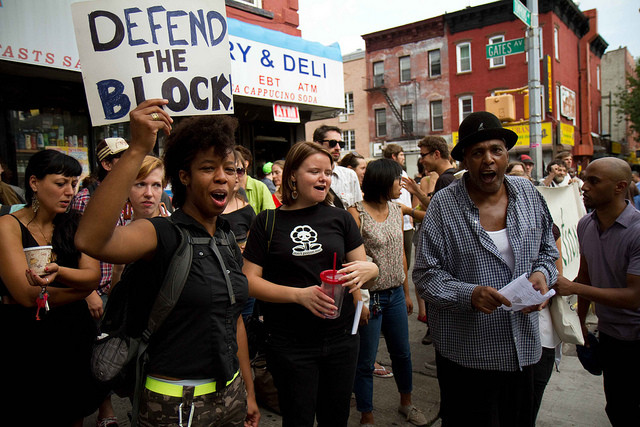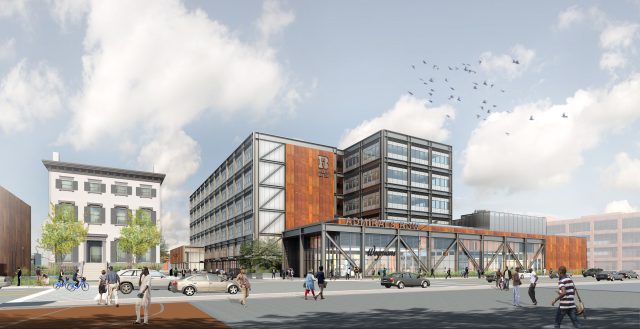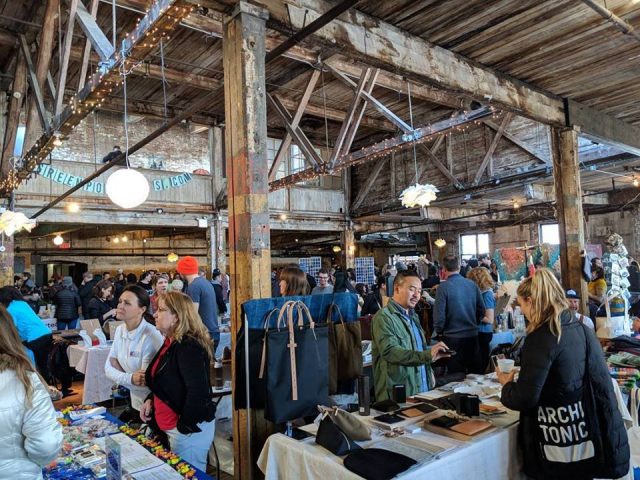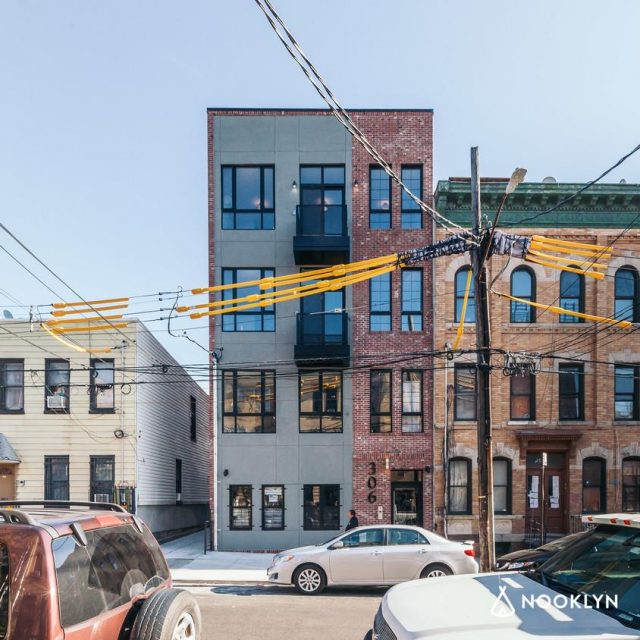
WNYC’s new podcast about Brooklyn gentrification is only two episodes in but here’s a trend you can expect to continue for all eight installments. In the first episode, reporter Jim O’Grady talks about how the show reached out to several developers to get their prospective on the changes gentrification is bringing on the borough. They’re reshaping neighborhoods so dramatically and are frequently maligned in the press and over dining room tables across the city as the main force that’s driving out long-time residents and churning housing into a slurry of real estate money for the rich. This podcast, a sober and thoughtful look at the situation, would be a prime venue for developers to come forth and explain or defend themselves. Right? Nope. The show could only find one developer who would talk to them in that episode, and even he would only talk using a pseudonym. “Isaac” lets O’Grady into his South Williamsburg office, a cauldron of gentrification in progress, where he talks with shady brokers to locate properties where he can jack up the rent and evict tenants.
It seems here that developers think they have something to hide. They sound a lot like Trump supporters.
By this, I mean the Trump supporters Lindy West talks about in her smart piece in the Times last weekend, “What are Trump fans really ‘afraid’ to say?” In it, she brushes away the dirt of euphemisms and spin obscuring the campaign to reveal the true ancient relic hiding beneath: racism and hate, fossilized and beneath our feet the whole time.
Voters are “afraid to say what they really feel” so they turn to Trump, an attention junkie with no off switch who will shout off increasingly offensive things to get a fix. West says they’re “afraid” to say these things because deep down they know they’re wrong, that society would chew them up and spit them out, so they’re forced to bottle up hateful thoughts inside until an orange huckster comes along and acts like an avatar:
It’s an odd construction. Once you say, “He says what I’m afraid to say,” and point to a man who is essentially a 24/7 fire hose of unequivocal bigotry, you’ve said what you’re afraid to say, so how afraid could you have been in the first place? The phrase is a dodge, a way to acknowledge that you’re aware it’s a little naughty to be a misogynist xenophobe in 2016, while letting like-minded people know, with a conspiratorial wink, that you’re only pretending to care. It’s a wild grab for plausible deniability — how can I be a white supremacist when I’m just your nice grandpa? — an artifact of a culture in which some people believe that it’s worse to be called racist than to be racist.
It’s this kind of sunlight dodging Brooklyn developers seem be practicing too in refusing to defend themselves. It is glib to say something like “if you have nothing to hide, then you shouldn’t be worried,” but we must wonder what these developers are afraid to say on their own behalf. Good journalists seek out the comments of the subjects they’re covering even if those subjects are entirely unwilling, so I have no doubt WNYC gave them ample chance to respond, and explained the stakes.
"Stand With Trump" poster in Cobble Hill, Brooklyn. #deblasiosnewyork pic.twitter.com/6hSCYZJ0Gg
— Benjamin Weingarten (@bhweingarten) March 12, 2016
Yet you never see them come forward, operating instead in the shadows, the boogey men of change we never get to see in public. You witness this every time they don’t return a request for comment to DNAinfo, deliver an eviction through letters and harassment or turn to tenuous legal claims in a Mr. Burns-ian attempt to shut down a community garden. “Isaac” offers up his rationale: neighborhoods benefit when there is a “mix of incomes” (translation: fewer poor people). If what they’re doing is legal and “good” for the community, as Isaac says, then why not try to win over the public?
The second episode that came out today does manage to talk to one landlord who uses his name, though he’s painted as an underdog: even his $500,000 million in assets isn’t enough to get into the game in East New York. That’s all as the total value of real estate transactions in Brooklyn have exploded from $1 billion in 2010 to $9.5 billion in 2015.
That’s a lot of money moving around, but as it moves it plows aside longtime residents who get evicted from their homes and can no longer afford to stay in the neighborhoods where their support systems of family and friends live. No doubt there is some admiration between some landlords/developers and Trump, one of the nation’s most famously successful and trashy developers. But to paraphrase West, do developers think it’s worse to be called a scumbag developer than to actually be one?
Listen to There Goes the Neighborhood here.
Follow Tim: @timdonnelly.
One Response to
Leave a Reply




I don’t think developers have anything to hide. What they do is pretty plainly obvious. They don’t go on a podcast about gentrification because that would be pretty stupid for them to do that. They have nothing to gain from it. There’s simply no good reason for them to go on the radio. It would most likely just make their job more difficult.